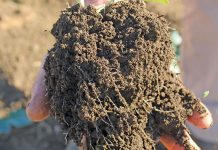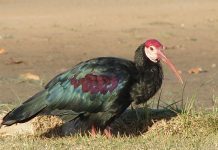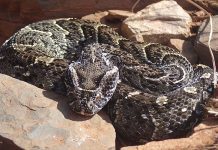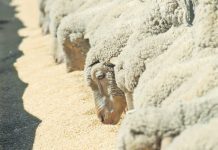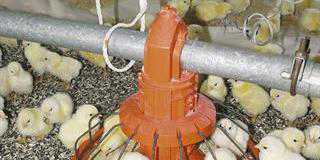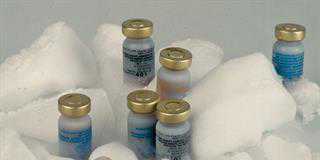South Africa’s livestock farmers need to implement biosecurity programmes without fail, or risk the destruction of their herds. That’s the message Dr Chris van Dijk, Pfizer’s group manager: veterinary services, brought to the Aldam Stockman School near Ventersburg recently.
“Few livestock breeders in South Africa quarantine new arrivals on their farms, but isolating these animals can prevent the spread of a range of diseases,” he explains. “Many producers lose 1% to 10% of their production and profit potential in this way without even realising it. They merely write it off as part of their operating costs.”
Aside from a quarantine area, explains Dr Van Dijk, farmers should also provide for the separate handling of food, disposal of manure/urine and equipment, such as feed and water troughs.
Preventing the spread of disease
The flow of people, livestock and vehicle traffic to and from the isolation area must be managed to ensure germs aren’t transferred between the quarantined animals and the resident ones.
“Quarantined animals should be kept separate for a minimum of 21 to 30 days,” continues Dr Van Dijk.
“This is necessary to get past the incubation period of the majority of diseases they might be carrying.
Although new animals often look healthy on arrival, many are afflicted by disease several days or even weeks later, because the stress of relocation suppresses their immune systems.
The isolation period gives the owner and vet the opportunity to fully examine the animals and to complete a comprehensive vaccination programme.”
It’s also vital to test new arrivals for disease, as quarantine alone won’t “stop” diseases such as bovine viral diarrhoea, Johne’s disease, and bovine leukaemia. “These devastating diseases can be spread by carrier animals which appear perfectly healthy,” he warns.
Lack of biosecurity can cost you
Disease in a herd can undo years of hard work and even cause financial ruin. “That’s why it’s critically important that livestock breeders introduce biosecurity systems as part of their herd management programmes,” says Dr Van Dijk. “Managing a herd without a biosecurity programme can be compared to playing Russian roulette. Why take unnecessary risks?”
Contact Dr Chris van Dijk on 011 320 600.
Caption:
When quarantining animals, provide for separate equipment, feeding and waste handling.
WAYNE SOUTHWOOD

